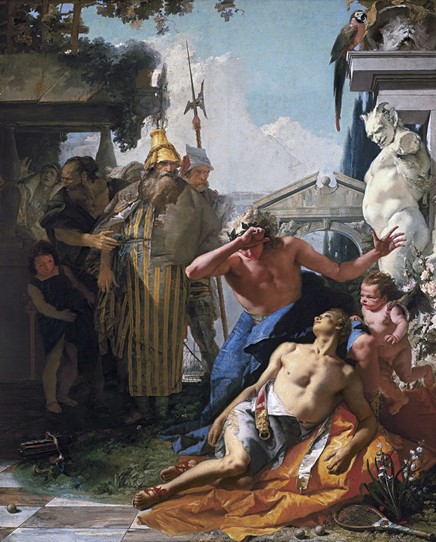What does Hyacinthia mean?
The name Hyacinth is a variant form of Hyacinth (Greek). Hyacinthia is an unusual first name for females. And also, an equally unusual last name for both children and adults.
Hyacinthia is a place in Sparta where the Hyacinthian festival was celebrated. Karen’s doll but in the Baby Sitter’s Little Sister series was named Hyacinthia because she said ‘Hiya! Hyacinthia!’ while calling for Karen. Hyacinthia is now her best friend!
Hyacinthia
Origin in Classical Mythology
In Hyacinthus important for Spartan festivals. Therefore, the Hyacinthia, in the Spartan month Hyacinthus. This was probably the most important festival to celebrate. It lasted three days and had its roots in a tragedy. Probably a summer festival, it lasted three days and was a time of mourning for Hyacinthus and a time of rejoicing in the majesty of Apollo.
A Dictionary of Greek and Roman Antiquities, John Murray, London, 1875.
HYACINTHIAN a city in Peloponnesus is said to have been founded by Syracuse, a son of Hercules.
The ancients didn’t agree on much, but they agreed on one thing – the Amyclaean Apollo and Hyacinthus were lovers.
Apollo, who had been worshiped as a local god, was now brought in as the national divinity of the Dorians. So, the name of the city became Apollonia and the region of Amyclae.
The Hyacinthia lasted for three days and also began on the longest day of the Spartan month Hecatomb Aeon. Thus, in the Ancient Greek calendar, Hecatomb Aeon was the longest day of the month Hekatombeus.
Origin in Classical Mythology
Probably an early summer festival, it lasted three days, the rites gradually passing from mourning for Hyacinthus to rejoicing in the majesty of Apollo Important of Spartan festivals, then the Hyacinthia in the Spartan month Hyacinthus.
The ancient Greeks mourned the passing of their youth. The rites gradually passed from mourning for Hyacinthus to rejoicing in the majesty of Apollo.
Proceedings of Hyacinthia
The Hyacinthia lasted three days. On the second day, there were banquets at which no one made a meal but rather ate with their eyes and drank only water. The third day was a period of mourning during which no one did anything but lament.
The first day was a solemn, even a somber, occasion for the entire community. The young people played the cithara and the aulos and sang of the glory of Apollo. Then others participated in horse races and athletic contests, which kept the festive mood going.
These events included the parades of decorated wagons, where the city’s women would gather for public entertainment.
Figure 1 Hyacinthia
The Helots
The helots had the right to participate in the celebrations, as did any foreigners: “they treat not only their countrymen but any foreigners who happen by”. The kopis took place under special tents known as a characteristic trait of ancient country festivals.
It is likely that the Spartans celebrated the festival with a more solemn air than during other festivals, or perhaps held more secrets. The custom of offering chitons to the god on the third day is similar to offerings made to Athena at Athens during the Panathenaic Games.
The procession was led by a chorus, which, in the absence of a military force, was the sole guardian of the city. In the procession was a wagon containing the statue of the god. On the wagon was a golden tripod, which held the offerings of the people. The procession moved through the city, stopping at the gymnasium, where a sacrifice was made. The Hyacinthia was held in honor of the god Apollo, who was the protector of the city.
Modern practice
The Hyacinthia is a celebration of the life of Hyacinthus.
The celebration usually begins on the longest day of the Spartan month Hecatombaeon, which is a week before the full moon. The day begins with a procession of wagons, which have been decorated to resemble the ancient wagons used for the procession.
The Spartans were famous for their beauty and skill in dancing. At the Hyacinthia, the Spartans performed various dances, and the women of the city competed in a footrace.
Likely, the Spartan men did not participate in the Hyacinthia. The Spartans did not participate in the celebration of the god Apollo. However, the women of the city, especially those who had the right to participate in the procession, did take part in the Hyacinthia.
The Spartans likely took part in the festival. It is possible that the Spartans did not take part in the procession of the wagon.
Hyacinthia and the Mysteries
A belief in the Hyacinthia is shown by the fact that it was celebrated during the same period as the Mysteries. According to Plato, the Spartan Mysteries took place in the month of Hyacinthus. The Mysteries were a series of secret rites performed by the members of the Spartan community.

